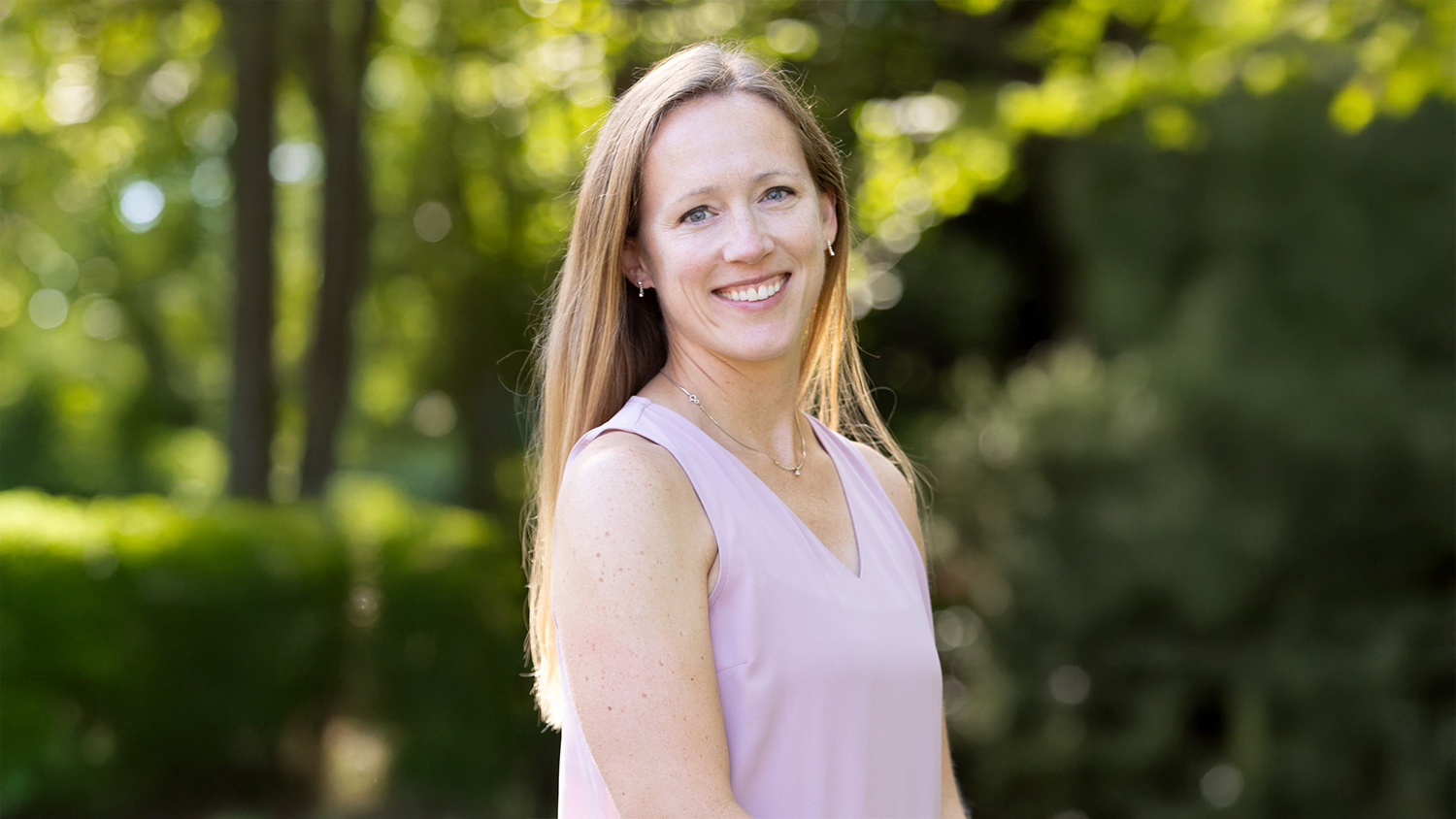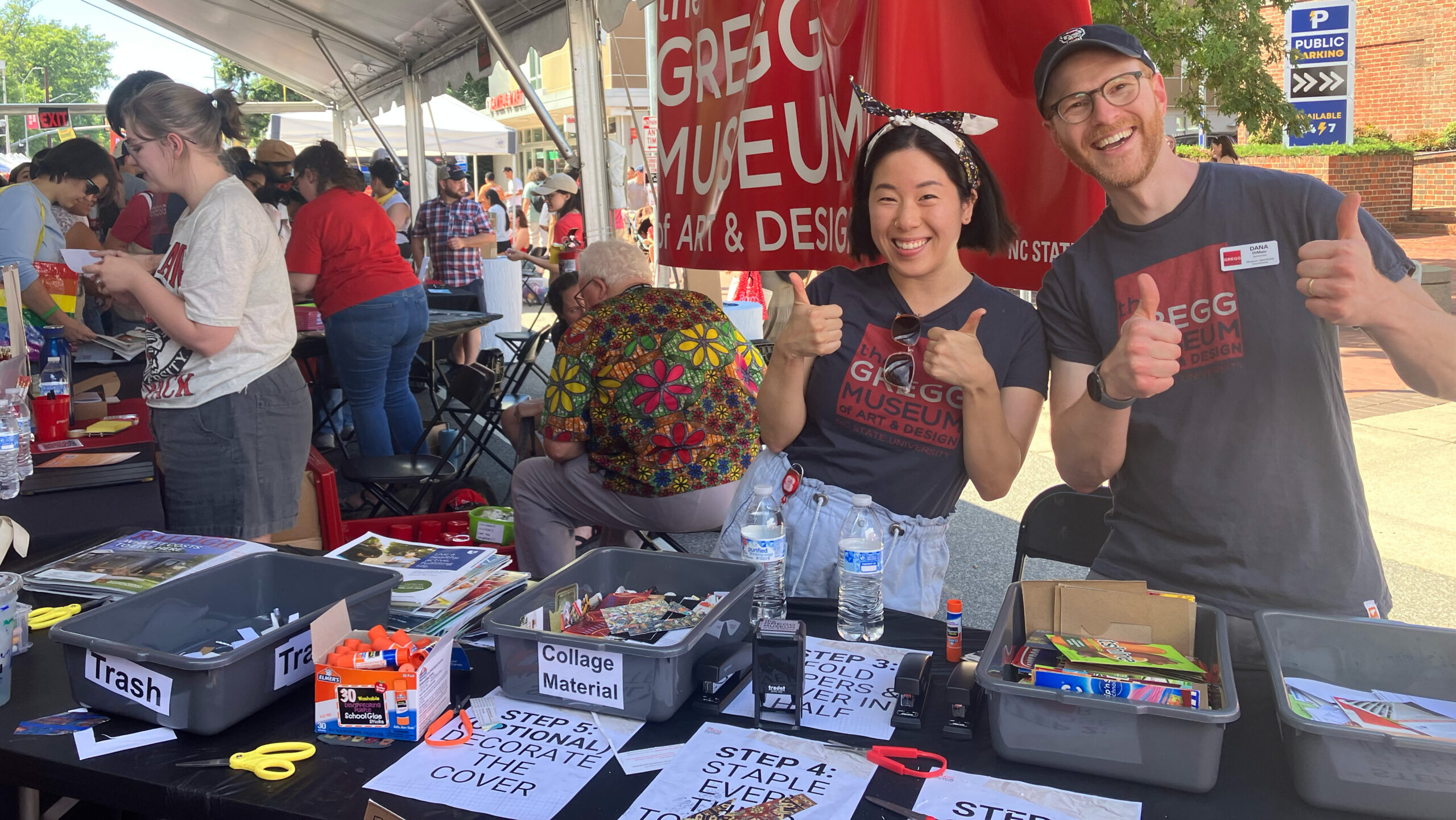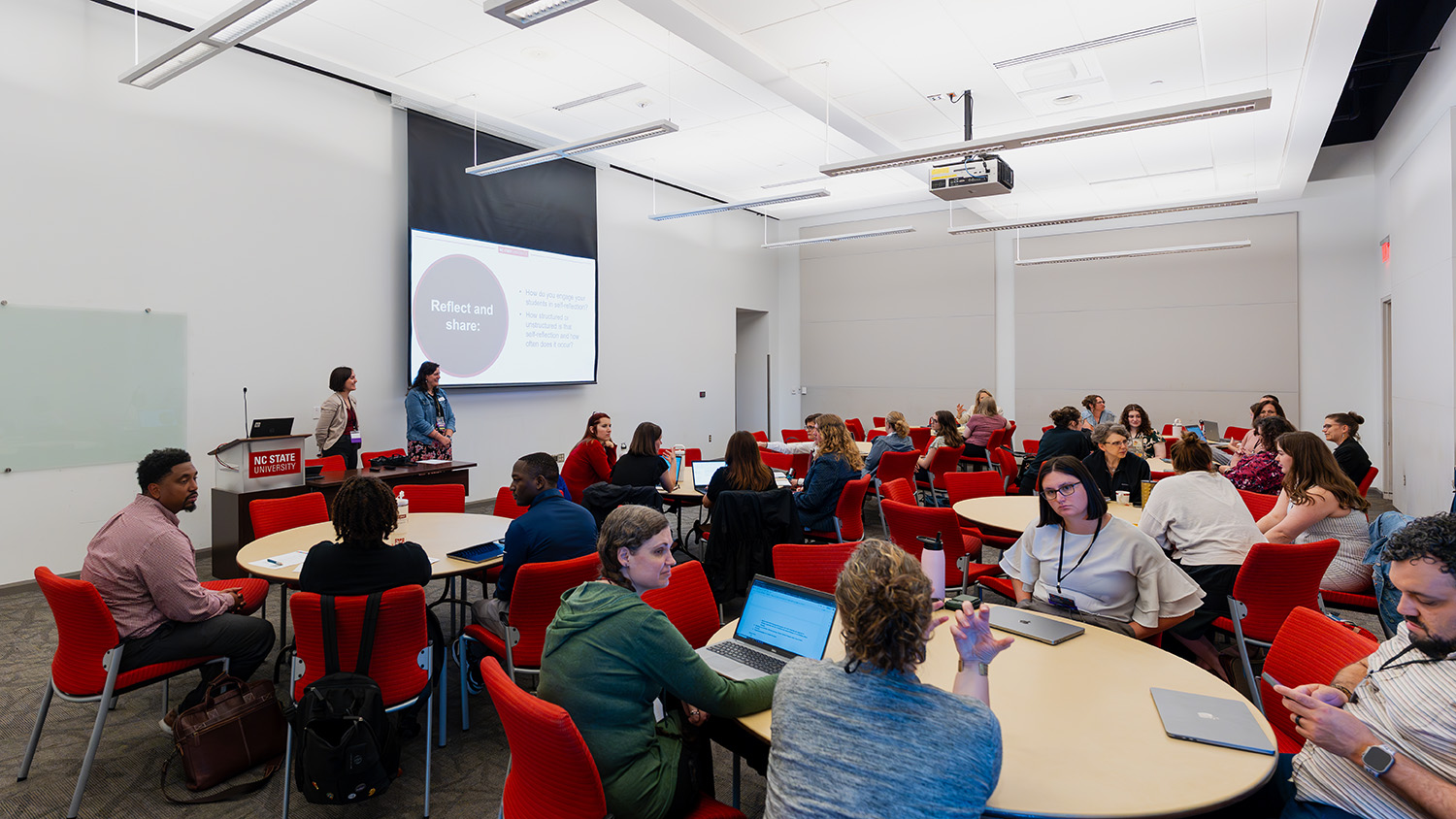Student Health Services Pivots Quickly to Provide On-Site and Remote Care During COVID-19 Pandemic
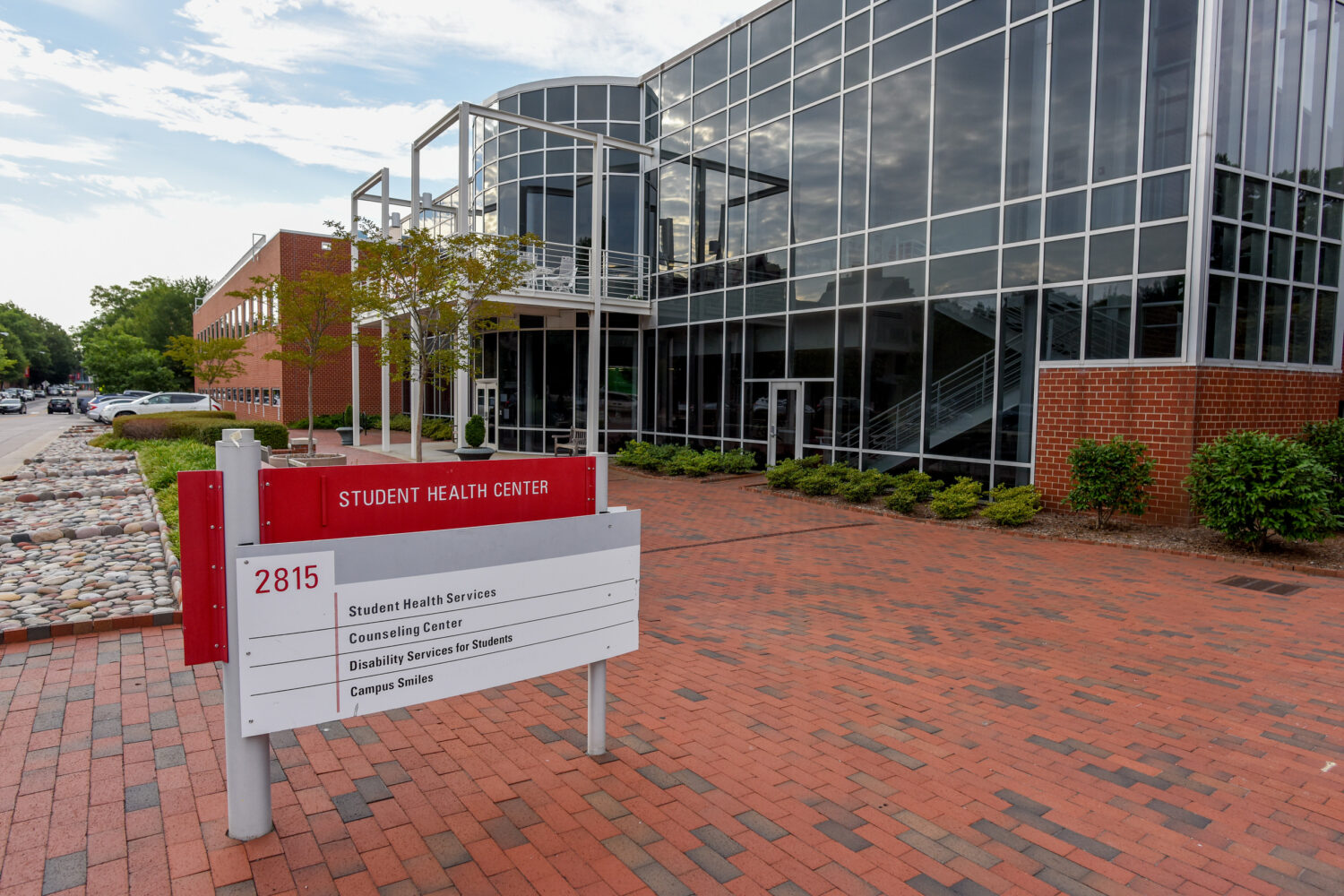
As we approach the apex of the COVID-19 pandemic (expected in several weeks), the NC State Division of Academic and Student Affairs’ Student Health Services team continues the flurry of adaptations, reconfigurations, and regroupings to ensure that NC State students are safely cared for.
In between seeing patients in person and via Zoom, Julie Ann Casani, MD, MP, and director of Student Health Services, took a moment to describe what’s happened in the past three weeks.
“Before Spring Break we realized what was going on and worried that a lot of unwell students would return to campus, so we made arrangements to separate out potentially sick patients from well(ish) students.”
Telemedicine Solutions
After Spring Break was extended, the team implemented a call-in appointment schedule in order to provide telemedicine services.
“We had huge hurdles to overcome to get these systems in place, yet we found ways to maintain excellent care for our patients, decrease exposure, decrease visits to urgent care or emergency rooms, and alleviate stress,” Casani said.
“All of our providers are dedicated and caring beyond belief—everyone went above and beyond to make sure we transitioned quickly,” she continued. “A month ago, the team had only talked about providing telemedicine. Today, it’s the primary method of offering care.”
“All of our providers are dedicated and caring beyond belief—everyone went above and beyond to make sure we transitioned quickly.”
Dr. Julie Casani
Sarah Bowen-Pasfield, head of GYN Services, said the team scrambled to address the issues of a compressed time frame, logistics, confidentiality, legal aspects, and technology required to set up telehealth services.
“By early April we offered telephone appointments for routine prescription refills, contraception consultations, and treatment for certain sexually transmitted diseases,” Bowen-Pasfield said. “Students with more serious issues can still make a regular appointment. The rewards are so profound! I love that we are here for the students.”
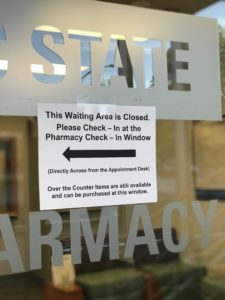
She said that her team used to meet monthly, and now they meet multiple times a week in order to keep up with the changes and ensure clear communication. Today, the telehealth appointment volume exceeds office visits.
Rebecca Otto, pharmacy director for Student Health, said her big concern is protecting students and staff while still providing full service, as the pharmacy has a small waiting area. She was really worried about who would run the pharmacy if her staff got sick.
“We made our changes very quickly,” Otto said. “We closed the waiting area and utilized a small window from which we can distribute medications at a safe distance.”
The pharmacy also accommodates students by working with insurance companies to get overrides for certain medications and helping students get three-month supplies at one time.
Otto’s team wanted to do something to support the medical staff and providers from the very start of the pandemic, so they started making Infection Control Kits. These contain a facemask, hand sanitizer, a thermometer, and tissues. They also made a Sick Day Survival Kit containing over the counter medications that would be used for symptom management that accompany a viral illness.
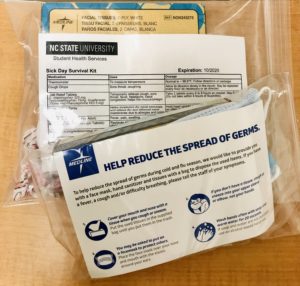
Make Student Health Your First Call
The team felt terrible when they heard a student didn’t come to Student Health Services because they thought it was closed. As a result, they went to the local Urgent Care and incurred a great—and unnecessary—expense.
“Our staff is here for our students and we can help them navigate whatever health issues they are experiencing,” Casani said. “We want students to call us before even thinking of going to urgent care or the ER if they can wait, of course. We’re here for them.”
The Student Health team is also helping NC State students who are no longer in Raleigh by getting prescriptions transferred or giving referrals to local clinics. Any student in the UNC System and currently in Raleigh can also benefit from the Student Health clinic (free health evaluations, prescriptions at a reduced cost, less out of pocket fees with the Student Blue Insurance card).
“We are here for you and happy to help,” Bowen-Pasfield said. “Please call us so we can see how best we can help you. You aren’t alone! We miss our students so much, and it’s eerily quiet. We look forward to having campus return to being vibrant and full.”
Casani said the Student Health team is learning a lot about how to practice in this new reality every day, and she believes instituting telemedicine may be a good thing for the future. It builds resilience, she said, and when the university comes out on the other side, she and her staff will know more and have better skills.
“We’re here for the long haul for our students,” she said. “Whether a student needs to be seen for a minor health issue, ongoing treatment of a condition, get refills on prescriptions, or just needs to chat about how they are feeling, they can reach out through their HealthyPackPortal to set up an appointment.”
Students with a concern, a medical problem, or needing to talk with a health professional must call Student Health Services at 919.515.2563 to make an appointment, since walk-in visits are not currently available. Call the after-hours Advice Line at 919.515.2563, option 9, to speak directly to a medical professional.
- Categories:
